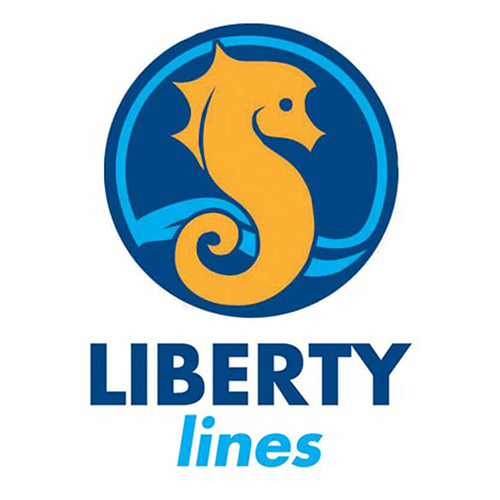
Liberty Lines
Mostra la conferma della prenotazione
Basta mostrare la conferma del biglietto e salire a bordo del traghetto!
Tipi di sistemazioni
-
Posti a sedere sul ponte
Posti a sedere all'aperto
Navi di Liberty Lines,

Adriana M
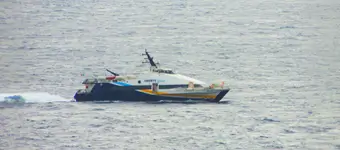
Ale M
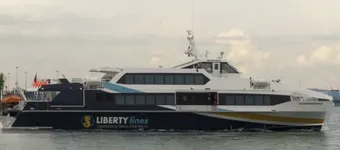
Alessandro Morace
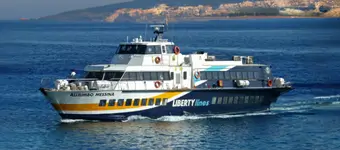
Alijumbo Messina
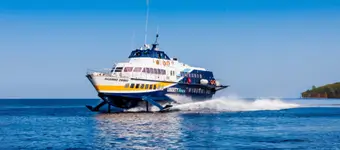
Alijumbo Zibibbo
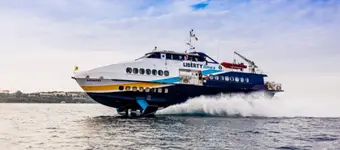
Ammari

Antioco

Calypso
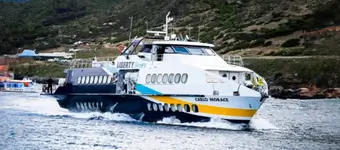
Carlo Morace

Carlotta M
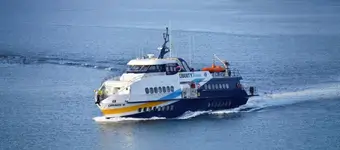
Carmen M

Carmine
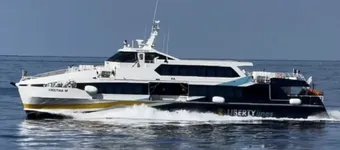
Cristina M
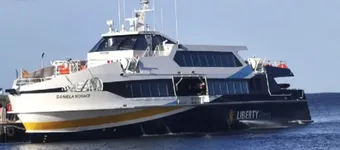
Daniela Morace
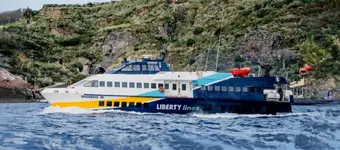
Eduardo M

Emma M

Eraclide
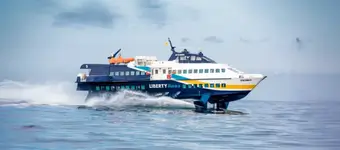
Eschilo
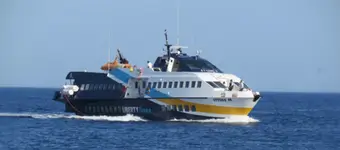
Ettore M

Federica M
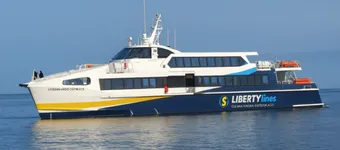
Ferdinando Morace
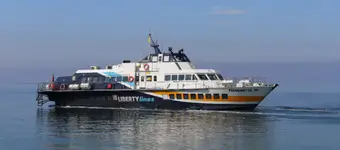
Fiammetta M
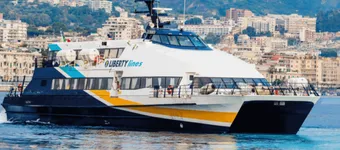
Gabriele M

Garagonay
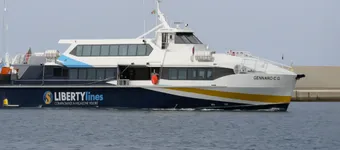
Gennaro C.G.
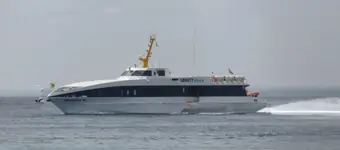
Gianluca M
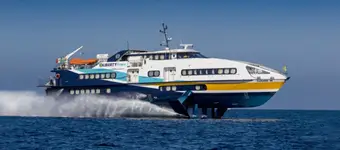
Gianni M

Mantegna

Marco M
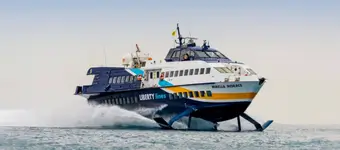
Mirella Morace
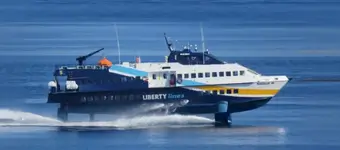
Natalie M

Platone

Sofia M
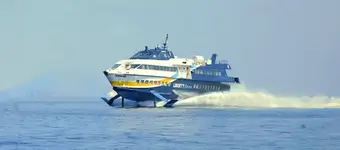
Tiziano
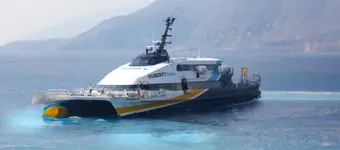
Vittoria M
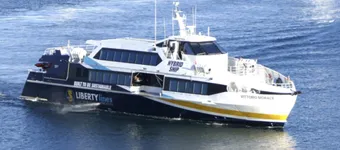
Vittorio Morace
Tutte le rotte di Liberty Lines
- Alicudi - Filicudi
- Alicudi - Lipari
- Alicudi - Milazzo
- Alicudi - Palermo
- Alicudi - Panarea
- Alicudi - Rinella
- Alicudi - Salina
- Alicudi - Stromboli
- Alicudi - Vulcano
- Corfù - Saranda
- Empedocle - Linosa
- Empedocle - Lampedusa
- Favignana - Levanzo
- Favignana - Marettimo
- Favignana - Marsala
- Favignana - Trapani
- Filicudi - Alicudi
- Filicudi - Lipari
- Filicudi - Milazzo
- Filicudi - Messina
- Filicudi - Palermo
- Filicudi - Rinella
- Filicudi - Salina
- Filicudi - Stromboli
- Filicudi - Vulcano
- Ginostra (Stromboli) - Lipari
- Ginostra (Stromboli) - Milazzo
- Ginostra (Stromboli) - Messina
- Ginostra (Stromboli) - Panarea
- Ginostra (Stromboli) - Salina
- Ginostra (Stromboli) - Stromboli
- Ginostra (Stromboli) - Vulcano
- Lampedusa - Linosa
- Lampedusa - Empedocle
- Levanzo - Favignana
- Levanzo - Marettimo
- Levanzo - Marsala
- Levanzo - Trapani
- Linosa - Lampedusa
- Linosa - Empedocle
- Lipari - Alicudi
- Lipari - Filicudi
- Lipari - Ginostra (Stromboli)
- Lipari - Milazzo
- Lipari - Messina
- Lipari - Palermo
- Lipari - Panarea
- Lipari - Reggio Calabria
- Lipari - Rinella
- Lipari - Salina
- Lipari - Stromboli
- Lipari - Vulcano
- Lipari - Vibo Valentia
- Marettimo - Favignana
- Marettimo - Levanzo
- Marettimo - Marsala
- Marettimo - Trapani
- Marsala - Favignana
- Marsala - Levanzo
- Marsala - Marettimo
- Messina - Lipari
- Messina - Panarea
- Messina - Reggio Calabria
- Messina - Rinella
- Messina - Salina
- Messina - Stromboli
- Messina - Vulcano
- Milazzo - Alicudi
- Milazzo - Filicudi
- Milazzo - Ginostra (Stromboli)
- Milazzo - Lipari
- Milazzo - Napoli
- Milazzo - Palermo
- Milazzo - Panarea
- Milazzo - Rinella
- Milazzo - Salina
- Milazzo - Stromboli
- Milazzo - Vulcano
- Napoli - Milazzo
- Palermo - Alicudi
- Palermo - Filicudi
- Palermo - Lipari
- Palermo - Milazzo
- Palermo - Panarea
- Palermo - Rinella
- Palermo - Salina
- Palermo - Stromboli
- Palermo - Ustica
- Palermo - Vulcano
- Panarea - Ginostra (Stromboli)
- Panarea - Lipari
- Panarea - Milazzo
- Panarea - Messina
- Panarea - Salina
- Panarea - Stromboli
- Panarea - Vulcano
- Panarea - Vibo Valentia
- Pantelleria - Trapani
- Reggio Calabria - Lipari
- Reggio Calabria - Messina
- Reggio Calabria - Panarea
- Reggio Calabria - Rinella
- Reggio Calabria - Salina
- Reggio Calabria - Stromboli
- Reggio Calabria - Vulcano
- Rinella - Alicudi
- Rinella - Filicudi
- Rinella - Lipari
- Rinella - Milazzo
- Rinella - Messina
- Rinella - Palermo
- Rinella - Panarea
- Rinella - Reggio Calabria
- Rinella - Salina
- Rinella - Stromboli
- Rinella - Vulcano
- Salina - Alicudi
- Salina - Filicudi
- Salina - Ginostra (Stromboli)
- Salina - Lipari
- Salina - Milazzo
- Salina - Messina
- Salina - Palermo
- Salina - Panarea
- Salina - Reggio Calabria
- Salina - Rinella
- Salina - Stromboli
- Salina - Vulcano
- Salina - Vibo Valentia
- Saranda - Corfù
- Stromboli - Ginostra (Stromboli)
- Stromboli - Lipari
- Stromboli - Milazzo
- Stromboli - Messina
- Stromboli - Panarea
- Stromboli - Rinella
- Stromboli - Salina
- Stromboli - Vulcano
- Stromboli - Vibo Valentia
- Trapani - Favignana
- Trapani - Levanzo
- Trapani - Marettimo
- Trapani - Pantelleria
- Ustica - Palermo
- Vibo Valentia - Lipari
- Vibo Valentia - Salina
- Vibo Valentia - Stromboli
- Vibo Valentia - Vulcano
- Vulcano - Alicudi
- Vulcano - Filicudi
- Vulcano - Ginostra (Stromboli)
- Vulcano - Lipari
- Vulcano - Milazzo
- Vulcano - Messina
- Vulcano - Palermo
- Vulcano - Panarea
- Vulcano - Reggio Calabria
- Vulcano - Rinella
- Vulcano - Salina
- Vulcano - Stromboli
- Vulcano - Vibo Valentia








